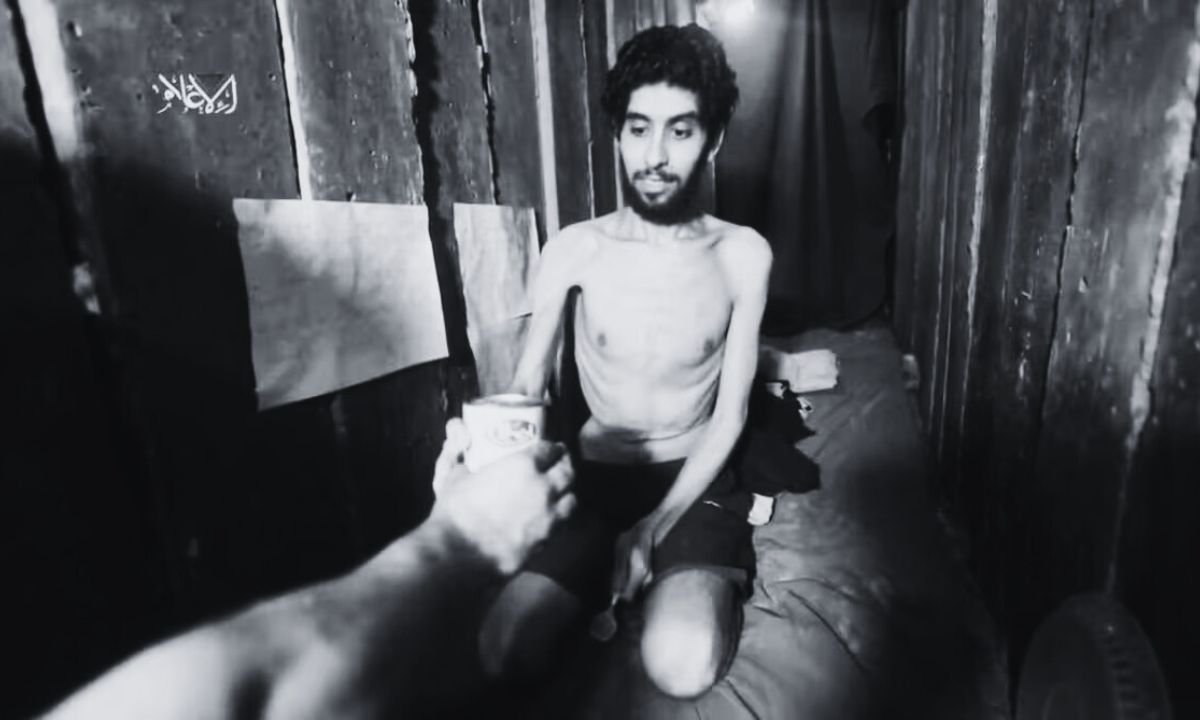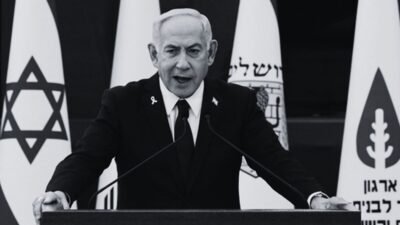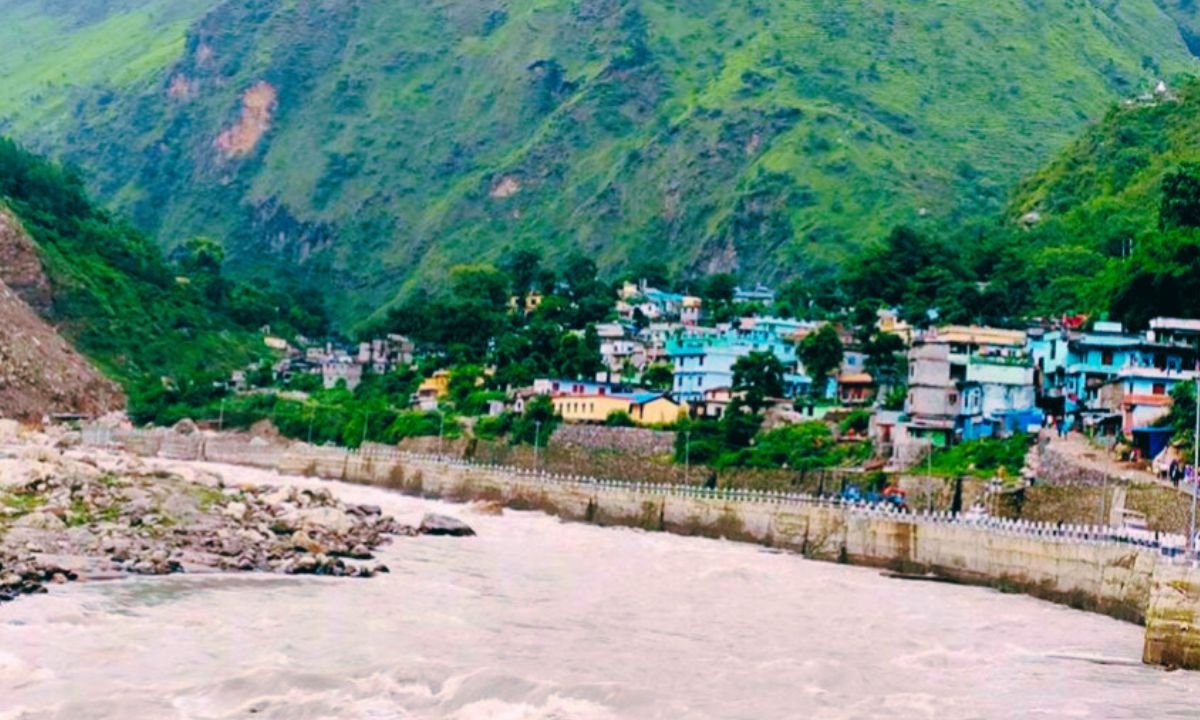Now Reading: Hostage videos spark outrage as protests grows in Israel
- 01
Hostage videos spark outrage as protests grows in Israel
Hostage videos spark outrage as protests grows in Israel

Armed groups Hamas and Palestinian Islamic Jihad (PIJ) have released videos of Israeli hostages held in Gaza, causing deep concern and outrage. The videos have added pressure on Israel to agree to a ceasefire and worried the families of the hostages.
Last week, PIJ released a 6-minute video of 21-year-old Israeli hostage Rom Braslavsky on Thursday. Hamas also released a video of another hostage, 24-year-old Evyatar David, on Saturday.
In the videos, both hostages appear extremely thin and malnourished. Their bones are visible, their faces look tired and sunken, and they seem weak and scared. They also struggle to speak.
David is shown in an unknown tunnel, saying he has been surviving on very little food and water for many days. Braslavsky’s condition is similar. PIJ said the video of Braslavsky was recorded just before they lost contact with him and his captors, and his current status is unknown.
Experts believe these videos are being used as psychological tactics to pressure Israel into a ceasefire. The families of the hostages have requested media outlets not to air the full videos, as they find them emotionally painful and fear they may be used as propaganda.
Braslavsky’s family allowed only a short clip to be shared publicly. They said Rom appears “broken” in the video and urged the Israeli government and international leaders to take urgent action for his release. David’s family accused Hamas of deliberately starving him, but Hamas denied the claim.
Hamas said they give the same food to hostages as they give to their fighters and the people of Gaza. Hamas military spokesperson Abu Ubaida, speaking to Turkey’s Anadolu Agency, blamed Israel’s blockade for the food shortage in Gaza. He said Israel has blocked aid from entering Gaza.
Hamas political leader Izzat al-Risheq also blamed Israeli Prime Minister Benjamin Netanyahu for creating starvation conditions that endanger both hostages and civilians.
Gaza faces worsening humanitarian crisis
The war in Gaza has caused a severe humanitarian crisis. The UN and World Health Organization (WHO) have warned of “catastrophic hunger.” Many international organizations have accused Israel of blocking essential supplies like food, water, and medicine, putting millions of Palestinians at risk.
Israel denies these accusations, saying Hamas is hiding the aid and using it for its fighters. According to WHO, over 5,000 children were treated for malnutrition in Gaza hospitals just last month. Gaza’s Hamas-run health ministry said 175 people, including 93 children, have died from hunger and dehydration since the war started.
Protests and political pressure in Israel
The hostage videos have led to mass protests in Israel, especially in Tel Aviv and Jerusalem. Thousands of people accused the Netanyahu government of focusing on war instead of rescuing the hostages.
Meanwhile, over 550 retired Israeli security officials, including former heads of Shin Bet and Mossad, signed a letter urging U.S. President Donald Trump to help end the war. They said that although the war began as self-defense, it is now going beyond that and needs to stop.
In response, Netanyahu condemned Hamas and PIJ for their “unimaginable cruelty.” He met with Julian Lerisson, a regional chief of the International Red Cross, and expressed deep concern about the hostages’ condition. He urged the Red Cross to ensure food, water, and medical help reach the hostages. Netanyahu said, “These videos show how urgent it is to free the hostages. We will do everything to bring them home.”
Hamas offers new deal
On Monday, Hamas proposed that if Israel stops airstrikes and opens permanent humanitarian routes into Gaza, it will allow the Red Cross to assist the hostages. This proposal could restart peace talks, though past negotiations have repeatedly failed.
Global leaders react
The International Red Cross said the videos show that the hostages are in danger and urged Hamas to give its teams immediate access. “We are very worried. They need urgent medical and humanitarian help,” said Red Cross official Julian Lerisson.
French President Emmanuel Macron condemned Hamas’s actions as cruel and unacceptable. He called for immediate steps to release the hostages and ensure humanitarian aid reaches Gaza. France recently recognized Palestine as an independent state.
German Chancellor Friedrich Merz also stressed the need for talks to reach a ceasefire and release the hostages. The U.S. State Department expressed concern over the hostages’ condition and urged both Israel and Hamas to show flexibility in negotiations. However, U.S. and Israeli negotiators continue to blame Hamas for failed talks.















